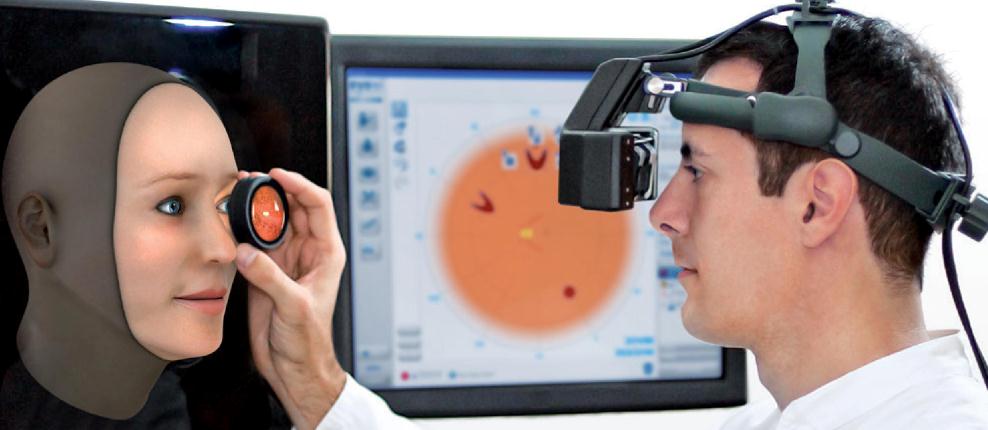
SUNY Optometry has introduced the first phase of a state-of-the-art, virtual reality simulation laboratory that will provide students at the College with a unique and vital new way to hone their critical diagnostic skills. The initial launch of the lab includes eight training simulators—six binocular indirect ophthalmoscopes and two direct ophthalmoscopes—that use an integrated, augmented reality technology to provide a highly realistic, three-dimensional experience for retinal examinations.
The simulators provide first and second year OD students the opportunity to examine a wide range of realistic, clinically relevant cases prior to doing so on patients. They will also be used to hone the skills of third and fourth year OD students, as well as residents and, potentially, practicing optometrists. Each simulation experience is summarized and performance data is stored in a database that will allow faculty members to further examine and analyze students’ diagnostic abilities over a period time.
An important goal of the simulators is to support the integration of the psychomotor and cognitive skills that are required of optometry students as they progress forward in the OD program and—beyond that—are required as clinicians. The simulators contain numerous examples of relevant retinal and vitreous pathologies, ranging from macular degeneration and hereditary and diabetic disorders, to tumors in the chorioretinal complex. Case descriptions and clinical records of the virtual patients are also provided.
The simulators contain numerous examples of relevant retina and vitreous pathologies, ranging from macular degeneration and hereditary and diabetic disorders, to tumors in the chorioretinal complex. Case descriptions and clinical records of the virtual patients are also provided.
The new simulation laboratory is part of a growing commitment that the College has made toward increasing the opportunities it provides for its students to build their clinical skills utilizing the most up-to-date tools available.
“This technology provides an excellent way for students to practice difficult skills and get immediate feedback that can be easily monitored,” Dr. David Troilo, vice president and dean for Academic Affairs said about the simulation lab. “The advanced modules introduce students earlier to a variety of disease states that they can observe in high fidelity simulations that will help prepare them better for actual clinical patient care.”
Watch to learn more about the College’s new virtual reality simulation laboratory